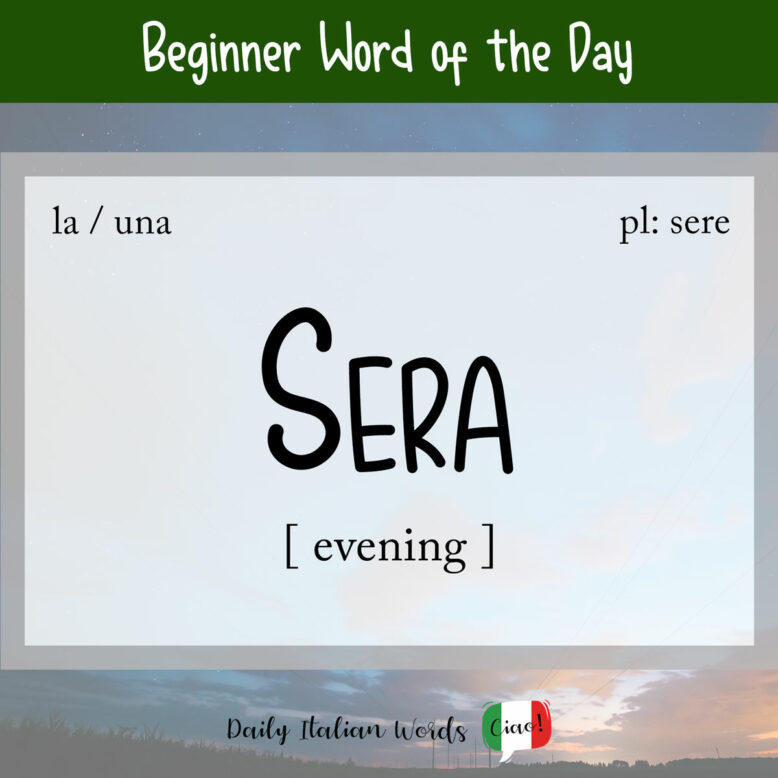Following the morning (mattina) and the afternoon (pomeriggio), we experience the penultimate phase of the day, which is sera (evening).

This feminine noun, whose plural form is sere, takes the following definite and indefinite articles:
- la sera = the evening
- le sere = the evenings
- una sera = an evening
- delle sere = (some) evenings
Sera is derived from the late Latin sēra, which is an ellipsis of sera dies (“late part of the day”).
Sono partiti che era quasi sera.
They left when it was almost evening.
Unlike its English counterpart, the Italian word sera encompasses not only the concept of evening but also extends to refer to the night (notte). For this reason, time expressions like stasera (this evening), domani sera (tomorrow evening), and ieri sera (yesterday evening) can also denote tonight, tomorrow night, and last night respectively.
Stasera vado in discoteca con gli amici.
I’m going to the disco with my friends tonight.
Some common words and expressions that contain sera include:
- dalla mattina alla sera = from morning ’till night
- questa sera = this evening / tonight
- di sera = in the evening
- sul far della sera = at sunset
- mattina e sera = day and night, continually
- verso sera = around sunset time

If the word sera already seems familiar to you, it may be because it is contained within the common formal greeting Buona sera meaning Good evening! Note that this expression can be used from late afternoon onward (usually from around 5 pm).
Buonasera Maria, come sta?
Good evening, Maria. How are you?
If you encounter the expression da sera, (i.e. abito da sera = evening dress), it signifies a specific type of clothing or accessory intended to be worn in the evening for an important dinner, a party, a gala etc.

A proverb that closely resembles its English counterpart is rosso di sera bel tempo si spera (literally “red in the evening, hopefully good weather”). In English, we would say red sky at night, sailor’s delight.
In literary Italian, sera is also figuratively used to describe the latter part of a person’s life. L’ultima sera (literally “the last evening”), for example, is a euphemism for la morte (death).
Heather Broster is a graduate with honours in linguistics from the University of Western Ontario. She is an aspiring polyglot, proficient in English and Italian, as well as Japanese, Welsh, and French to varying degrees of fluency. Originally from Toronto, Heather has resided in various countries, notably Italy for a period of six years. Her primary focus lies in the fields of language acquisition, education, and bilingual instruction.


